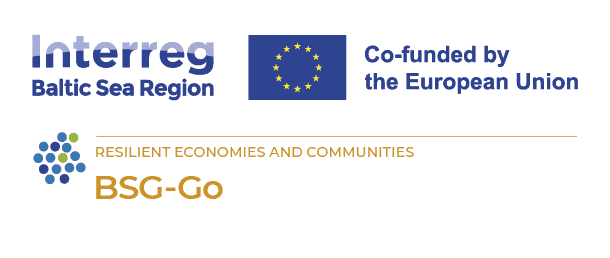
Sustainable Nexus Kick-Off Conference
16 November 2023
“Emissions are generated all along the value chain, from manufacturing and data center energy usage,
to e-sporting events and packaging. In the U.S. alone, the annual game-related energy usage
is estimated to generate 24 million metric tons of carbon dioxide emissions —the same amount as over 5 million cars.”
Project Drawdown 2023
Slowly but steadily, we have come to understand that we cannot tackle the range of alarming societal and environmental issues in silos. They are all interconnected. Not surprisingly, in this spirit there is an increasing number of pioneers in the gaming industry fighting for the protection of the environment, of human beings, of their diversity, their health and equal rights. And while we may not solve any sustainability issues ourselves, we have the power contribute to making a substantial positive impact.
Games developers have a responsibility
• as citizens, in their personal behaviour in their private space,
• as entrepreneurs and employees in their work environment, its processes and workflows, and
• as part of a creative technology-based industry that combines the magic of the narrative to provide visions, tickles the imagination and possibly influences behaviour and mindsets, with an undeniably high consumption of energy and primary resources and production lines that abuse cheap labour in the global south.
There is an increasing public discourse on the civil and public responsibility and, following Patrick Prax’ mind-boggling presentation, industries have tended to foster the responsibility of the individual for nearly 100 years to cover up their own abuse of the environment: not producing plastic is bad, but throwing it away… We can produce as much plastic as we want, as long as YOU are sensible enough to put it into the recycling bin. How many of us know how difficult and efficient recycling plastic really is? The better impact definitely still is: use (= produce) less plastic. But this is where the industry turns a “deaf ear”.
Now, let’s face it: how “deaf” is the game industry? Is the intensive gaming (play, but less hours) or the console producer to be blamed? And do they actually care? Do the gamers, hence the consumers care how green their game is and the companies how impactful their consoles are? Frankly, it is too late to start compartmentalising blame and responsibility to certain groups. We need to act on all fronts. Raising awareness for what game developers can do in their daily business environment is (alas) still a big need, which is a cross-cutting need for all industries. Understanding what game developers specifically can do to contribute to our societal responsibility towards a respectful relationship with our natural environment, is as big a need but less studied than for example measuring a company’s carbon footprint and green house gas emissions.
For this cross-cutting aspect of reducing a company’s environmental impact, more and more solutions are being found and offered. For game studios (including small ones), important pioneering studies and reports are under way. Highly prominent in the game community has been the work done by initiatives such as Playing4Planet, IDGA Climate, Arscht-Rockefeller and After Climate, a consultancy for Indies and game studios (https://www.afterclimate.com.au/). Tools such as Jyros (https://jyros-jeuvideo.com/) – soon also in English – are customised environmental impact calculators that will empower also small studios to reduce their environmental impact.
But what specifically can the game industry do? A prominent example is what Epic Games did with Fortnite (see their whitepaper “Reducing Fortnite’s Power Consumption”) giving a detailed overview on how they optimised Fortnite’s energy consumption on Xbox, PlayStation, and PC. The suggested improvements can be implemented with very little development cost and minimal impact on player experience. The highly recommendable green-gaming education report by the project of the same name, and represented in the conference by Prof. Sonia Fizek, and the amazing “Environmental Game Design Playbook” by the SIG Climate of the IGDA group are not only great reads but provide a insights and recommendations of a whole range of both the entrepreneurial and industrial opportunities for reducing the environmental impact of the game business.
So what is this Sustainable Nexus initiative all about? It is about providing a space for the plethora of initiatives, support services, tools, communities to network and reach out to the game community across Europe. BSG Go!’s interest here is with empowering the game supporting ecosystem through this networked space and facilitating the circulation of the increasing resources to gain more knowledge on how to specifically provide support for game studios wishing to reduce their environmental impact and contribute to creating new imaginations that will alter the reality and foster new imaginations to lead to systemic changes which is ultimately what our society needs to impose on itself (see here the grandiose presentations of Trevin York and Patrick Prax at the Sustainable Nexus conference. To register for the event: https://sustainability-nexus-conference.coeo.events/register?invite=X1FmGfbY )
15 November 2023 – a great start into a promising initiative of stimulating sustainable game development and the game industry’s commitment to environmental responsibility.





